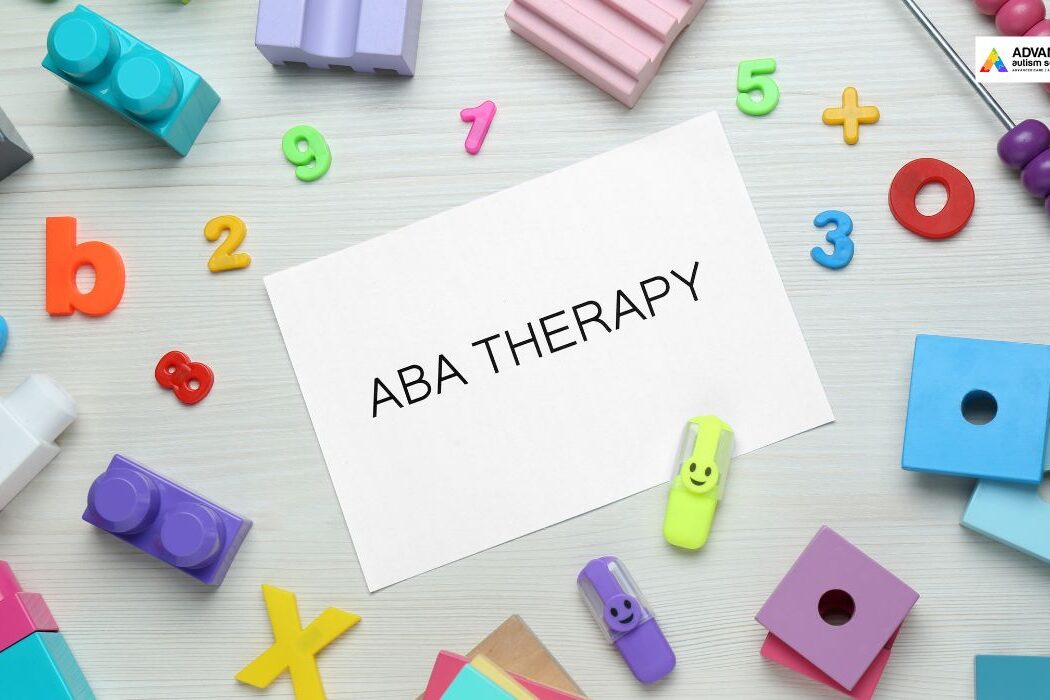Parenting a child with Autism Spectrum Disorder (ASD) presents unique challenges, but with the right approach, you can make significant strides in improving your child’s daily life. Applied Behavior Analysis (ABA) therapy has emerged as a powerful tool in fostering positive development and enhancing the overall well-being of children with ASD. In this article, we will explore the benefits of ABA therapy and provide practical insights into incorporating it into your child’s routine.
Understanding ABA Therapy
ABA therapy is a scientifically validated approach that focuses on applying behavioral principles to improve socially significant behaviors, including autism therapy ABA. It is particularly effective for children with ASD, as it helps them acquire essential life skills and reduce challenging behaviors. The therapy is tailored to the individual needs of each child, making it a versatile and personalized intervention in the realm of autism therapy ABA.
Structuring Daily Activities
Morning Routine:
Establishing a consistent morning routine is crucial for children with ASD. ABA therapy can help in creating visual schedules and using positive reinforcement to guide your child through tasks like dressing, brushing teeth, and having breakfast. Consistency provides a sense of security and predictability, making mornings more manageable.
School and Learning:
Collaborate with educators to integrate ABA principles into your child’s school environment. ABA techniques can enhance communication skills, social interactions, and academic performance. Reinforcement strategies, such as token systems, can motivate positive behavior in the classroom.
After-School Activities:
Incorporate ABA strategies into after-school activities to encourage social engagement. Structured playdates, supervised by trained therapists, can provide opportunities for your child to practice social skills in a controlled environment. Positive reinforcement during play can reinforce desirable behaviors.
Communication Enhancement
Visual Supports:
Utilize visual supports, such as visual schedules, social stories, and communication boards, to enhance communication skills. ABA therapists can assist in creating personalized visual aids that cater to your child’s unique needs. Visual supports provide a concrete way to understand and follow instructions.
Social Skills Training:
ABA therapy includes targeted social skills training, focusing on areas like making eye contact, turn-taking, and understanding non-verbal cues. Incorporate these skills into everyday interactions, gradually reinforcing positive behaviors in social contexts.
Managing Challenging Behaviors
Functional Behavior Assessment (FBA):
ABA therapists conduct FBAs to identify the function of challenging behaviors. Once the triggers are understood, tailored interventions can be implemented. This proactive approach helps in preventing and addressing challenging behaviors effectively.
Positive Reinforcement:
Implement positive reinforcement techniques to encourage desired behaviors. Reward systems, such as token economies or a reward chart, can motivate your child to exhibit positive conduct. Consistent reinforcement fosters a sense of achievement and reinforces appropriate behavior.
Building Independence
Life Skills Training:
ABA therapy focuses on teaching essential life skills, including self-care, hygiene, and basic household tasks. These skills enhance your child’s independence and contribute to a higher quality of life. ABA therapists collaborate with parents to reinforce these skills at home.
Community Integration:
Expose your child to community activities with the support of ABA therapy. Structured outings, guided by therapists, provide opportunities for your child to generalize learned skills in real-world settings. Gradual exposure helps build confidence and adaptability.
Expanding Social Horizons
Community Engagement:
Encourage participation in community events and activities. ABA therapists can guide your child through social situations, providing support and reinforcement. Building positive experiences in communal settings contributes to the development of strong social bonds and a sense of belonging.
Peer Interaction:
Facilitate opportunities for your child to interact with peers. Structured playdates, group activities, or clubs can be avenues for developing friendships. ABA therapists can incorporate social scripts and role-playing to prepare your child for social interactions, boosting their confidence.
Tailoring ABA to Individual Needs
Individualized Programs:
ABA therapy is most effective when tailored to the specific needs of the individual. Work closely with ABA professionals to develop an individualized program that addresses your child’s unique challenges and strengths. Regular assessments ensure that the therapy evolves as your child progresses.
Parental Involvement:
Active parental involvement is key to the success of ABA therapy. Collaborate with therapists to understand the strategies used and extend them to daily routines. Consistency between therapy sessions and home life reinforces the lessons learned and accelerates progress.
A Holistic Approach to Well-being
Nutritional Guidance:
Explore how nutrition impacts your child’s behavior. ABA therapists can collaborate with nutritionists to create a well-balanced diet that supports cognitive function and overall well-being. A healthy diet can positively influence mood, energy levels, and attention span.
Mindfulness and Relaxation Techniques:
Introduce mindfulness and relaxation techniques to help manage stress and anxiety. ABA therapists can teach techniques such as deep breathing or simple mindfulness exercises. These tools empower your child to cope with challenging situations and promote emotional resilience.
Celebrating Milestones
Tracking Progress:
Regularly track and celebrate your child’s progress. ABA therapy involves setting achievable goals and milestones. Acknowledge and reward accomplishments, fostering a sense of pride and motivation for further growth.
Family Support Networks:
Connect with other families navigating similar journeys. ABA therapy often benefits from a strong support network. Sharing experiences, tips, and resources with other parents creates a sense of community and reinforces that you are not alone in your challenges.
Embracing a Positive Future
Transition Planning:
As your child grows, collaborate with ABA professionals to plan for transitions. Whether it’s transitioning to a new school or preparing for adulthood, ABA therapy can provide guidance and support during these pivotal moments.
Advocacy and Education:
Become an advocate for your child and others in the ASD community. ABA therapy can empower both you and your child to navigate societal challenges. Participate in workshops, events, and educational programs to stay informed and share your experiences.
Conclusion
In the intricate tapestry of parenting a child with ASD, ABA therapy serves as a powerful thread, weaving positive changes and fostering growth. Embrace the journey, celebrate achievements, and continue to learn alongside your child. With dedication, support, and the guidance of ABA therapy, you are creating a foundation for a fulfilling and enriched life.
To explore personalized ABA therapy options for your child, contact us at Advanced Autism Service.
FAQs
What is ABA therapy, and how does it benefit children with Autism Spectrum Disorder (ASD)?
Applied Behavior Analysis (ABA) therapy is a scientifically validated approach that applies behavioral principles to improve socially significant behaviors. It is particularly effective for children with ASD, helping them acquire essential life skills and reduce challenging behaviors. The therapy is personalized to meet the individual needs of each child, making it a versatile intervention.
How can ABA therapy be integrated into a child’s morning routine?
Establishing a consistent morning routine is crucial for children with ASD. ABA therapy can assist by creating visual schedules and using positive reinforcement to guide the child through tasks such as dressing, brushing teeth, and having breakfast. Consistency provides a sense of security and predictability, making mornings more manageable.
How can ABA techniques enhance a child’s school experience?
Collaborate with educators to integrate ABA principles into the school environment. ABA techniques can improve communication skills, social interactions, and academic performance. Reinforcement strategies, such as token systems, can motivate positive behavior in the classroom.
Can ABA therapy help manage challenging behaviors in children with ASD?
Yes, ABA therapists conduct Functional Behavior Assessments (FBA) to identify the function of challenging behaviors. Once triggers are understood, tailored interventions are implemented, taking a proactive approach to prevent and address challenging behaviors effectively. Positive reinforcement techniques, such as reward systems, are also utilized to encourage desired behaviors.
How does ABA therapy contribute to building a child’s independence?
ABA therapy focuses on teaching essential life skills, including self-care, hygiene, and basic household tasks, contributing to a child’s independence. ABA therapists collaborate with parents to reinforce these skills at home, fostering a higher quality of life.
How can ABA therapy help in expanding a child’s social horizons?
ABA therapy supports community integration through structured outings, guiding children to generalize learned skills in real-world settings. Encouraging participation in community events and facilitating peer interactions through structured playdates or group activities helps develop strong social bonds.
Is ABA therapy tailored to individual needs, and how can parents be involved?
ABA therapy is most effective when tailored to the specific needs of the individual. Parents play a crucial role by actively participating in therapy sessions, understanding the strategies used, and extending them to daily routines. Regular collaboration with ABA professionals ensures the therapy evolves as the child progresses.
How does ABA therapy take a holistic approach to well-being?
ABA therapists collaborate with nutritionists to explore how nutrition impacts a child’s behavior, promoting a well-balanced diet. Introducing mindfulness and relaxation techniques helps manage stress and anxiety, fostering emotional resilience.
How can parents track and celebrate their child’s progress in ABA therapy?
ABA therapy involves setting achievable goals and milestones. Parents are encouraged to regularly track and celebrate their child’s progress, acknowledging and rewarding accomplishments to foster a sense of pride and motivation for further growth.
How can families create a strong support network while undergoing ABA therapy?
Families can connect with other parents navigating similar journeys, sharing experiences, tips, and resources. Building a support network reinforces that parents are not alone in their challenges, enhancing the overall effectiveness of ABA therapy.




